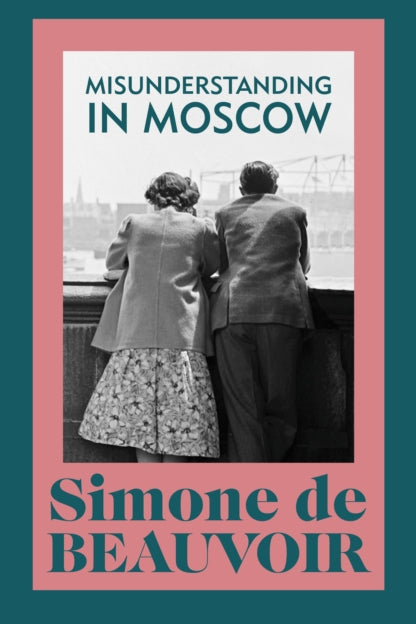Simone de Beauvoir
Simone de Beauvoir changed how the world thinks about freedom and feminism. This collection includes her landmark work The Second Sex and memoirs such as The Inseparables and Memoirs of a Dutiful Daughter. Misunderstanding in Moscow and The Woman Destroyed add fictional depth. For readers interested in existentialism, womanhood and intellectual life in postwar France, de Beauvoir’s work is both foundational and fiercely relevant.

The Second Sex - Simone de Beauvoir
Simone de Beauvoir famously wrote, 'One is not born, but rather becomes, woman'. In this groundbreaking work of feminism she examines the limits of female freedom and explodes our deeply ingrained beliefs about femininity. Liberation, she argues, entails challenging traditional perceptions of the social relationship between the sexes and, crucially, in achieving economic independence. Drawing on sociology, anthropology and biology, The Second Sex is as important and relevant today as when it was first published in 1949.

Misunderstanding in Moscow - Simone de Beauvoir
Nicole and André, a retired French couple, take a summer holiday to Russia. It is the 1960s and Russia is a beautiful, complicated place. Their guide is Macha, André's daughter from a previous relationship - a woman they both love. Adventure, inspiration, good food and good vodka are promised. Once thrilled by their romance, Nicole and André have now become too used to each other. Both harbour a growing feeling of not being fully understood - of being alone. Father and daughter engage in the grand debates of East-West relations, nationalism and socialism. But getting older, long-term relationships and how to enjoy life turn out to be the more pressing issues.

Memoirs of a Dutiful Daughter - Simone de Beauvoir
A superb autobiography by one of the great literary figures of the twentieth century, Memoirs of a Dutiful Daughter offers an intimate picture of growing up in a bourgeois French family, rebelling as an adolescent against the conventional expectations of her class, and striking out on her own with an intellectual and existential ambition exceedingly rare in a young woman in the 1920s. Simone de Beauvoir describes her early life, from her birth in Paris in 1908 to her student days at the Sorbonne, where she met Jean-Paul Sartre - 'the dream-companion I had longed for since I was fifteen'.

The Woman Destroyed - Simone de Beauvoir
The Woman Destroyed is a collection of three stories, each an exquisite and passionate study of a woman trapped by circumstances, trying to rebuild her life. In the first story, The Age of Discretion, a successful scholar fast approaching middle age faces a double shock – her son’s abandonment of the career she has chosen for him and the harsh critical rejection of her latest academic work. The Monologue is an extraordinary New Year’s Eve outpouring of invective from a woman consumed with bitterness and loneliness after her son and her husband have left home. Finally, in The Woman Destroyed, Simone de Beauvoir tells the story of Monique, trying desperately to resurrect her life after her husband confesses to an affair with a younger woman.

The Inseparables - Simone de Beauvoir
When Andrée joins her school, Sylvie is immediately fascinated. Andrée is small for her age but walks with the confidence of an adult. The girls become close. They talk for hours about equality, justice, war and religion; they lose respect for their teachers; they build a world of their own. But as the girls grow into young women, the pressures of society mount, threatening everything. This novel was never published in Simone de Beauvoir's lifetime. It tells the story of the real-life friendship that shaped one of the most important thinkers and feminists of the twentieth century.
